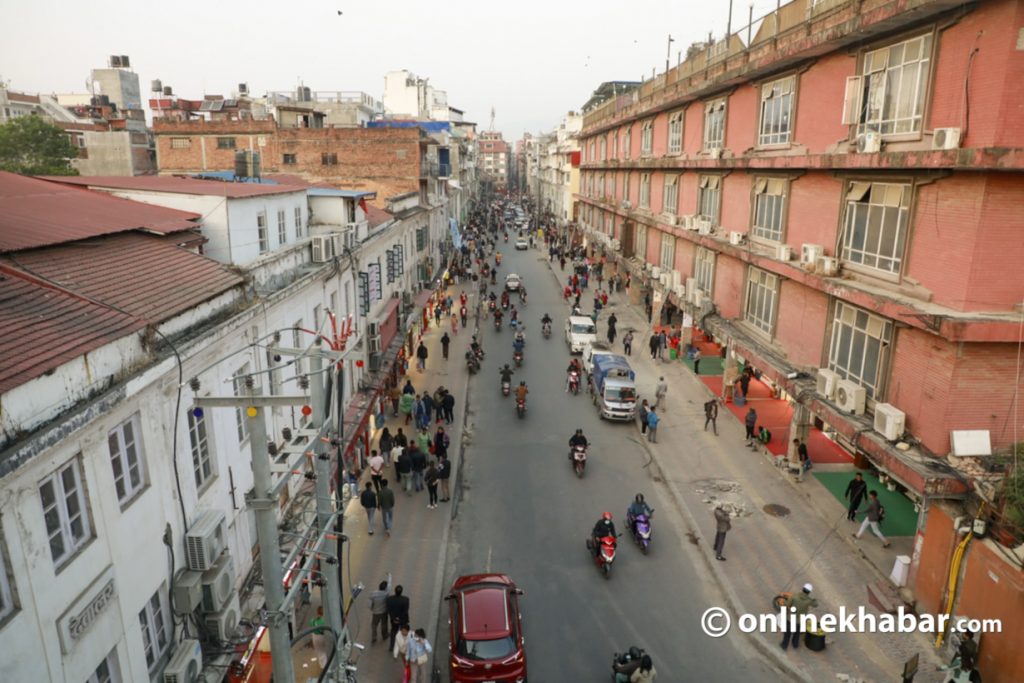
File
Decision-making stands as the bedrock of democratic governance, wielding profound influence over policies and public trust in elected officials. However, not all decision-making processes within democratic frameworks uphold the essential principles necessary for fair and effective governance.
While some processes champion transparency, inclusivity, and accountability, others falter, risking disillusionment among the populace.
The right way: Principles of democratic decision-making
In a democracy, transparency reigns supreme. It ensures decisions are made openly, with information accessible to all stakeholders. This openness cultivates trust among citizens, empowering them to hold leaders accountable for their actions and choices.
Inclusivity demands the incorporation of diverse perspectives and voices, ensuring decisions resonate with the varied needs and values of the populace. It mandates genuine consultations with stakeholders, experts, and affected communities, fostering a sense of ownership and legitimacy in the decision-making process.
Accountability forms another pivotal pillar. Elected officials are answerable to their constituents, necessitating justification of decisions through public debate, scrutiny, and electoral processes. Deliberation and debate ensure decisions are meticulously considered and grounded in reasoned discourse, rather than arbitrary imposition. Moreover, adherence to the rule of law shields decisions against arbitrariness, guaranteeing alignment with constitutional principles, human rights, and legal frameworks.
The wrong way: Pitfalls in democratic decision-making
Conversely, decision-making devoid of transparency—conducted behind closed doors or with insufficient disclosure—breeds mistrust and suspicion. Such opacity fosters perceptions of corruption or concealed agendas, thereby undermining the bedrock of democratic governance. Exclusion of voices and perspectives from decision-making processes results in decisions that may diverge from the broader public interest, alienating communities and diluting democratic legitimacy.
Lack of accountability poses another grave risk, allowing leaders to evade responsibility for their decisions due to weak institutional oversight or lack of public scrutiny. This can engender unchecked power and potential abuse, eroding public confidence in democratic institutions.
Decision-making influenced by populism or demagoguery, which appeals to emotions rather than reason, risks shortsighted policies that neglect long-term consequences. Furthermore, undue influence from special interest groups can distort policy outcomes, compromising the democratic principle of equal representation.
Current conflict in Kathmandu Metropolitan City: A case study
Recent decisions by the local government in Kathmandu Metropolitan City have ignited widespread controversy and protests. The municipal administration’s plans to implement a major infrastructure project, including the construction of a new road through a densely populated residential area, were executed without adequate public consultation or transparency.
This decision has sparked vehement opposition from affected residents, who assert their voices were disregarded and argue the project neglects crucial environmental and social concerns.
The lack of inclusivity and transparency in this decision-making process has amplified public distrust and unrest. Critics contend that the local government circumvented established procedures for public consultation and environmental impact assessments, highlighting a disregard for democratic principles. The ensuing conflict underscores the ramifications of decision-making that excludes community input and fails to uphold transparency and accountability.
Evaluation note on the decision of Mayor Balen Shah of Kathmandu
Recently, Mayor Balen Shah of Kathmandu Metropolitan City launched a controversial infrastructure project aimed at widening footpaths along New Road in the city centre, cutting through a densely populated residential zone.
This decision has sparked significant public outcry and protests, primarily due to perceived flaws in the decision-making process. Moreover, the narrowing of the road due to widened footpaths exacerbates the discomfort caused by vehicle parking on either side, making passage difficult for both vehicles and pedestrians alike.
Lack of public consultation
Chief among the criticisms levelled against Mayor Balen Shah’s decision is the absence of adequate public consultation. The decision to proceed with the infrastructure project was made without meaningful engagement with affected residents.
Public consultation is a cornerstone of democratic governance, essential for ensuring decisions reflect community needs and concerns. By neglecting to solicit public input, Mayor Shah’s administration missed an opportunity to gather crucial insights, address potential objections, and build consensus among stakeholders.
Transparency issues
The decision-making process surrounding the infrastructure project also suffered from transparency deficits. Transparency entails openness in decision-making, ensuring information about decisions, their rationale, and potential impacts is accessible to the public.
In this instance, there was perceived opacity in how the decision was reached, with inadequate disclosure of project details and implications for affected residents. This lack of transparency has fueled mistrust and suspicion among the public, undermining the decision’s credibility and Mayor Shah’s administration’s legitimacy.
Environmental and social concerns
Residents and community advocates have expressed significant concerns about the project’s environmental and social impacts. Building a new road through a densely populated residential area could escalate noise pollution, disrupt community life, and potentially harm the environment.
Furthermore, questions have been raised about the project’s compliance with sustainable development goals and environmental regulations. Mayor Shah’s administration appears to have disregarded these concerns, prioritising infrastructure development over community well-being and environmental sustainability. Additionally, shopkeepers and landlords along New Road have voiced fears about potential business decline due to the lack of adequate parking, sparking debates on social media.
Public opposition and protests
The decision has elicited vehement opposition and protests from affected residents and community groups. These protests underscore broader discontent with Mayor Shah’s administration’s governance approach and decision-making practices.
Public protests serve as a potent expression of democratic dissent, highlighting grievances and demanding accountability from elected officials. The scale and intensity of protests underscore deep public dissatisfaction with the infrastructure project and Mayor Shah’s leadership.
Implications and lessons learned
Mayor Balen Shah’s decision regarding the infrastructure project in Kathmandu Metropolitan City offers a poignant case study of the challenges of democratic governance. It underscores the critical importance of robust public consultation, transparency, and responsiveness to community concerns in decision-making processes. The controversy underscores the imperative for elected officials to prioritise inclusive governance practices that respect and engage diverse community voices.
Looking ahead, Mayor Shah’s administration should contemplate recalibrating its decision-making approach, placing heightened emphasis on transparency and public participation. Engaging in meaningful dialogue with affected residents, environmental experts, and community stakeholders can facilitate more informed decisions that balance developmental imperatives with environmental and social sustainability. By internalising these lessons, Mayor Shah’s administration has an opportunity to rebuild public trust, enhance governance efficacy, and foster a more inclusive and responsive local government in Kathmandu Metropolitan City.
Conclusion
Effective decision-making in a democracy hinges on upholding transparency, inclusivity, and accountability, which nurture trust and civic engagement. Adhering to these principles ensures decisions are made in the public interest, thereby underpinning democratic sustainability on a global scale.
In essence, the calibre of decision-making shapes democratic legitimacy and efficacy. Embracing tenets such as transparency, inclusivity, accountability, deliberation, and adherence to the rule of law is paramount for fostering trust and civic engagement within democratic systems.
Conversely, neglecting these principles risks eroding democratic values, fostering disenchantment, and undermining the bedrock of democratic governance. As societies confront intricate challenges, commitment to these principles remains indispensable for sustaining vibrant democracies worldwide.






















